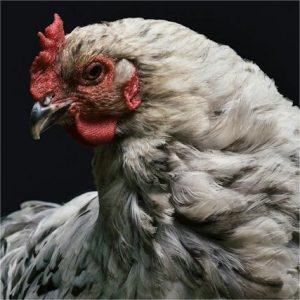Featured Products
Explore Products- In-Stock Tumor Cell Lines
- Human Orbital Fibroblasts
- Human Microglia
- Human Pulmonary Alveolar Epithelial Cells
- Human Colonic Fibroblasts
- Human Type II Alveolar Epithelial Cells
- Human Valvular Interstitial Cells
- Human Thyroid Epithelial Cells
- C57BL/6 Mouse Dermal Fibroblasts
- Human Alveolar Macrophages
- Human Dermal Fibroblasts, Adult
- Human Lung Fibroblasts, Adult
- Human Retinal Muller Cells
- Human Articular Chondrocytes
- Human Retinal Pigment Epithelial Cells
- Human Pancreatic Islets of Langerhans Cells
- Human Kidney Podocyte Cells
- Human Renal Proximal Tubule Cells




 Chicken Muscle Satellite Cells (CMSCs) are derived from the pectoralis skeletal muscle. They are integral for posthatch muscle development, repair, and regeneration, significantly influencing the quality of poultry breast meat. These cells serve as myogenic precursor cells within mature muscle, originally identified by Mauro in 1961. Positioned between the basal lamina and sarcolemma of muscle fibers, CMSCs play a crucial role in the regenerative capacity observed in adult skeletal muscles of higher vertebrates following injury. The orchestrated function of CMSCs underscores their importance in maintaining muscle tissue integrity and overall poultry musculature health.
Chicken Muscle Satellite Cells (CMSCs) are derived from the pectoralis skeletal muscle. They are integral for posthatch muscle development, repair, and regeneration, significantly influencing the quality of poultry breast meat. These cells serve as myogenic precursor cells within mature muscle, originally identified by Mauro in 1961. Positioned between the basal lamina and sarcolemma of muscle fibers, CMSCs play a crucial role in the regenerative capacity observed in adult skeletal muscles of higher vertebrates following injury. The orchestrated function of CMSCs underscores their importance in maintaining muscle tissue integrity and overall poultry musculature health.